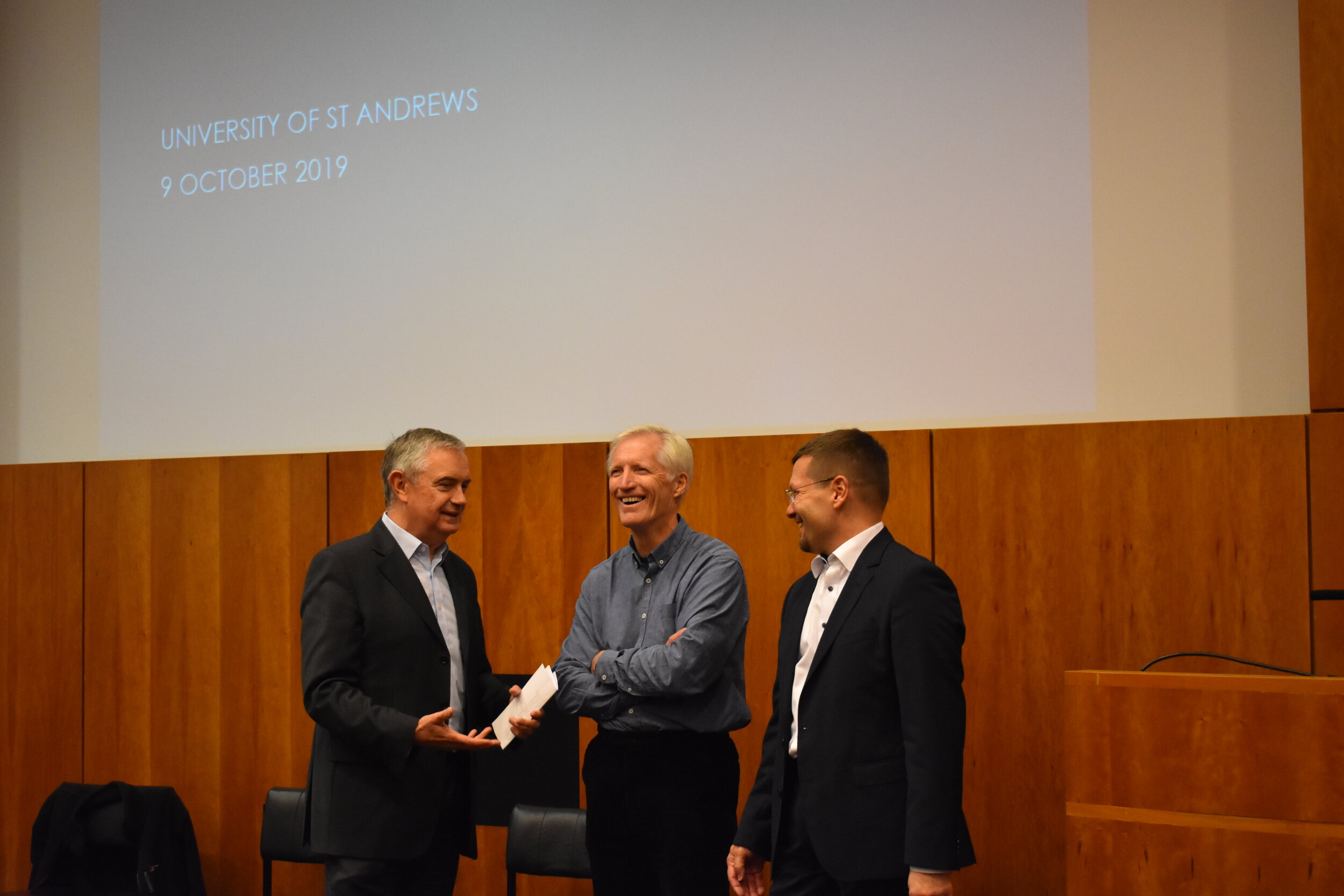Recap: The Future of Energy
This Wednesday October 9th, we were thrilled to hold our first public event: The Future of Energy, toward a zero-carbon economy. In collaboration with the University’s Sustainable Development Society, we had the pleasure of inviting three fantastic guests for an engaging discussion on the future of energy and climate action.
Our first guest, Mr Robin Höher, has been working in the energy sector for over 20 years, in Siemens' Power Generation and Service unit. He now serves on the World Energy Council, spurring international cooperation on green fuels (power-to-X).
Our second, Mr Ian Funnell, has had a long and distinguished career in the global energy sector: having worked in the UK utility sector, he joined ABB, a Fotune 500 applied-technologies company, where he now serves as UK Manaing Director.
From left to right: Mr Ian Funnell, Mr Iain Todd, and Mr Robin Höher.
Our third speaker, Mr Iain Todd, has had an exceptional career in renewable engineering, and is now pursuing a PhD at the University, specialising on the potential of solar power in Sub-Saharan Africa.
Our event kicked off with opening statements from the panelists. Each gave us an overview of their perspective on the global energy transition and outlined how their sector – public, private, academic – can contribute to it.
We succeeded this short introduction with an engaging discussion tactfully moderated by representatives from the Group and the Sustainable Development Society. This discussion attempted to answer some important questions: how the government can best stimulate green innovation, how the private sector could welcome climate regulation, and the basic building blocks of a zero-carbon future.
The event concluded with some questions from the audience, chief among them, how to address carbon leakage, and whether we should condone the aggressive demonstrations of Extinction Rebellion.
These are crucial conversations: they not only raise awareness about pressing issues within the climate crisis, but also force us to consider global climate change more critically – perhaps even leading to more pragmatic thinking on solutions.
At Roosevelt, these conversations are our raison d’être, and we look forward to hosting more of them.

